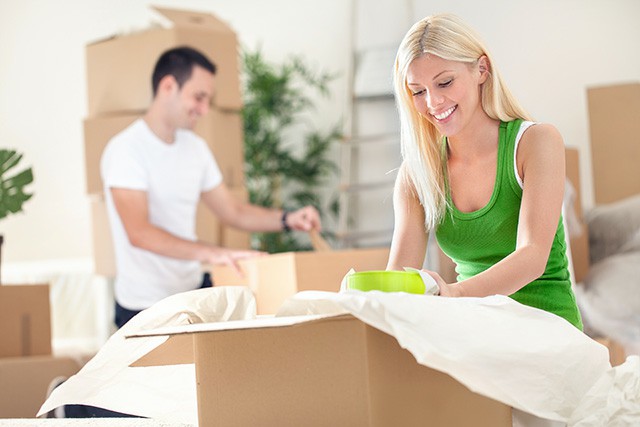
Before moving house, everyone knows the items that need to be on their checklist. But after the boxes are packed, the movers are gone, and you're alone in your brand new home, what then? Start crossing these things you should do right after moving off your to-do list!
1. Get Cleaning
Cleaning may be the last thing you have the energy for, but considering the poor job the previous owners may have done will give you a much-needed push. Wipe down your wardrobes and drawers before you start filling them. Disinfect the kitchen and bathroom to ensure that nasty bugs and bacteria aren't lurking on the surfaces. Run the vacuum cleaner to ensure high-traffic areas don't feel gritty underfoot.
2. Put Boxes in the Right Rooms
In the muddle of moving, boxes are often placed in the wrong rooms or a central, convenient location like the garage. Once the dust settles, it's time to put your moving boxes in the rooms where their contents belong. This will make the items accessible, even if you're not ready to unpack them just yet.
3. Unpack the Essentials
It'll take time for you to unpack every one of your possessions, so it's smart to prioritise. What are the items your household can't do without? You'll need a set of sheets for each bed you family members are sleeping in and doonas if it's cold. You'll want a saucepan and frying pan for cooking, as well as some knives and forks to eat with.
Your definition of essentials might depend on your budget. Some families would rather buy paper plates and toiletries at the nearest grocery store rather than fossick through boxes attempting to locate their own. After all, the packed away items will be used once they're unearthed, so there's no wastage in this approach. Other, more frugal households will consider digging out these items crucial to their comfort in their new home.
4. Ensure Organisations Have Your New Contact Details
You've probably called the electricity company to get the power connected and your telecommunications firm to hook up your phone and Internet, but there are probably a few more companies and individuals you should notify of your new residence.
Ensure you've notified all of your utility providers, your insurance providers, your state or territory's roads and traffic authority, your financial institution, the electoral commission, any companies you hold a subscription with (newspapers, magazines, DVDs etc.), and any organisations you're a part of, like wine and football clubs. Pet owners will also need to change their microchipping details.
You should also get in touch with family and friends, particularly anyone on your Christmas card list and elderly loved ones who are more likely to contact you using your landline or postal address than digital means. They'll appreciate you touching base, and it gives you an opportunity to pass on photos of your new dwelling.
Write down each company or individual as you notify them so you can be sure of whom you've contacted and whom you've forgotten.
5. Prepare for Emergencies
You'd be very unlucky to face a serious emergency when you move into your new home, but accidents do happen, so it's important to be prepared. Ensure your first aid kit has been unpacked and that it's fully stocked. Make sure everyone in your home knows where you've put it so that he/she can access it in case of emergencies.
Also, research the phone numbers for local GPs, doctors, vet surgeries, police stations, and other essential services and place them prominently, such as on the first page of a notepad next to your main phone or on a piece of paper stuck to the fridge. Not every emergency warrants a call to 000, but the time you waste looking up the right phone number could turn a minor emergency into something more serious.
6. Familiarise Yourself with Your New Home
It's important to become familiar with your new home so that you can conduct minor repairs and manage any emergencies.
Find the smoke alarms and check they're all in good working order. While residential buildings are required to have one smoke alarm installed on each floor, you might decide to install more if you feel your floors are large enough to warrant extra protection. If a fire did break out, how would your loved ones leave? Identify the most convenient emergency exit, and ensure everyone in your family knows where it is.
Do you know where your power box is located? Find it and look carefully to decide whether you understand its labelling. If it's not clearly marked, experiment yourself to discover which breaker disables which circuit. Make your own labels to ensure there's no confusion in a crisis.
What about the water mains? Do you know where to turn off the water supply if you need to perform minor plumbing work? Do some investigating, and contact the real estate agent if you can't find these important home spots.
7. Change the Locks
Changing locks isn't something many people think about when they move into a new home, but they might if they stopped to think how many keys for their property could be floating around. How well do you really know the previous owner after all? What about the people who lived in your home before that, and before that? Getting the locks changed reduces the risk of unexpected break-ins and gives you important peace of mind.
There's plenty to be done after you move house, and there's no better time than the present to cross the above items off your list.
Need help planning your move?
Here at Chess Moving, we can help make your local or interstate move as safe and convenient as possible. Contact us today for a quote.